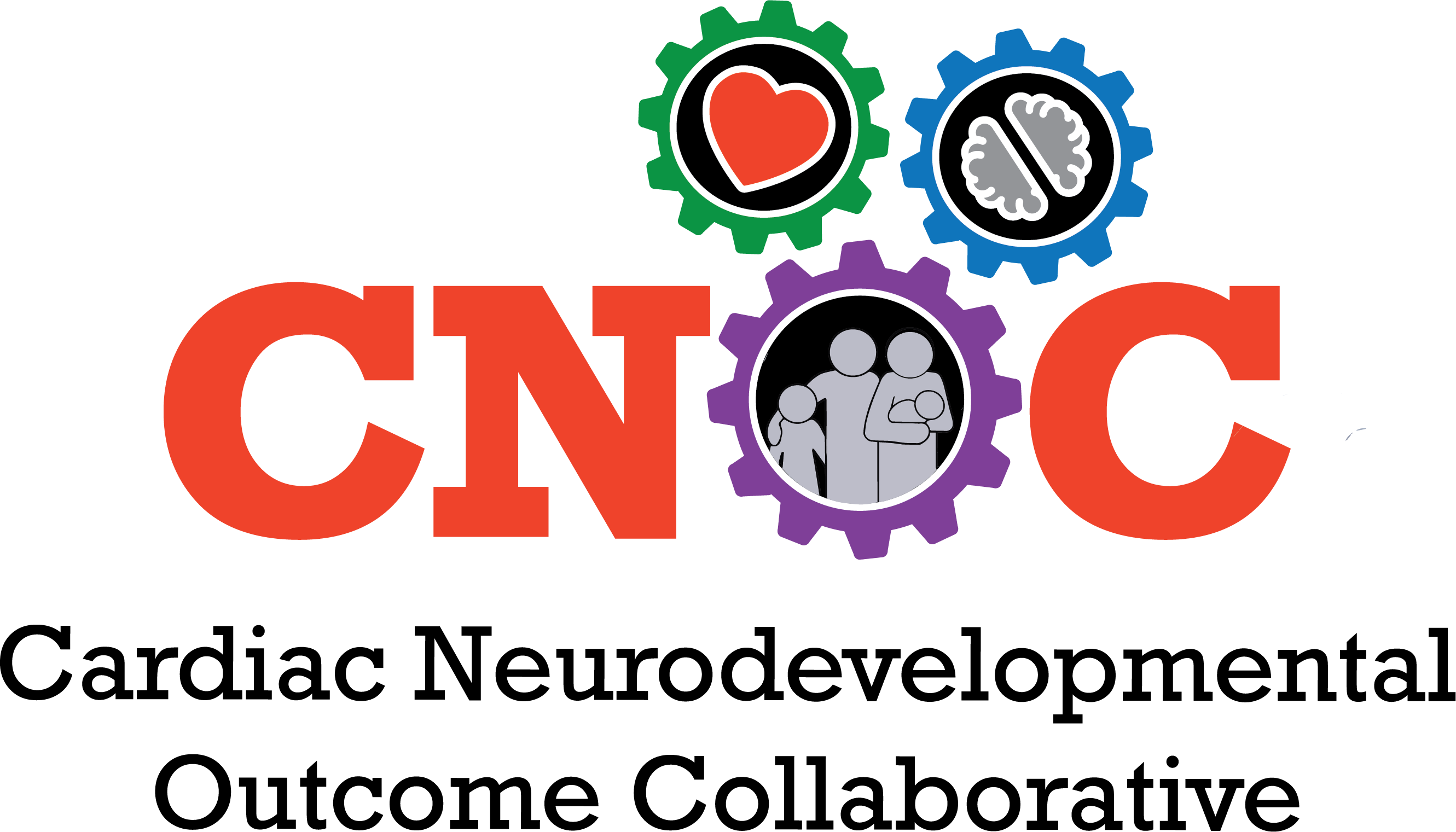 2024 Recipient Robert R. Clancy MD
2024 Recipient Robert R. Clancy MD
Robert R. Clancy MD is a native of Pittsburgh, Pennsylvania, who received his Bachelor of Science degrees in mathematics and chemistry from Georgetown University and medical doctor degree from the Johns Hopkins University School of Medicine in Baltimore, Maryland.
Dr. Clancy performed his internship and residency training in general pediatrics at the Johns Hopkins Hospital and pediatric neurology and clinical neurophysiology fellowships at Stanford University Hospital in Palo Alto, California. He joined the faculty of the Perelman School of Medicine at the University of Pennsylvania in 1981 and is now Professor Emeritus of Neurology and Pediatrics. He is the founder and former director of the Pediatric Regional Epilepsy Program of Children’s Hospital of Philadelphia. His clinical and research interests include neonatal EEG, neonatal seizures, the neurology of congenital heart disease, neuroprotection, pediatric EEG and epilepsy. He authored numerous peer-reviewed articles and co-authored the three-volume collection Atlas of Electroencephalography and the interactive DVDs “The Normal Neonatal EEG” and “The Abnormal Neonatal EEG and Seizures.”
Dr. Clancy currently lives in Wayne, Pennsylvania and enjoys doting on his daughters Maggie, Maira, Caitlin, Kelly and Laura, and grandchildren Fiona, Kira, Ronan, Cillian and Ziggy II.
 2023 Recipient Cheryl Brosig Soto PhD
2023 Recipient Cheryl Brosig Soto PhD
Dr. Cheryl Brosig Soto is a Professor of Pediatrics and Chief of Pediatric Psychology and Developmental Medicine at the Medical College of Wisconsin. She also serves as the Medical Director of the Cardiac Neurodevelopmental Follow-Up Program at the Herma Heart Institute at Children’s Wisconsin. Dr. Brosig Soto was a founding member of CNOC’s Steering Committee and chaired CNOC’s Program and Meetings Committee for several years.
Dr. Brosig Soto has been passionate about integrating psychological services for children with chronic illness throughout her career. She was the first psychologist in the United States to be fully integrated within a cardiology division and went on to found and Chair the Cardiology Special Interest Group within Division 54 (Pediatric Psychology) of the American Psychological Association. Dr. Brosig Soto has mentored many psychologists who are now working with patients and families impacted by congenital heart disease. She has also consulted with cardiac centers around the world about how to set up a neurodevelopmental follow-up program.
Dr. Brosig Soto’s research interests have focused on the neurodevelopmental and psychosocial outcomes for children with congenital heart disease. Most recently, she has been working on quality improvement initiatives to enhance the school liaison services that children with complex medical conditions receive. Dr. Brosig Soto looks forward to the future of CNOC and its collaborations with other learning networks.
 2022 Recipient J. William Gaynor MD
2022 Recipient J. William Gaynor MD
Dr. Gaynor is a Professor of Pediatric Cardiothoracic Surgery and holds the Daniel M. Tabas Endowed Chair in Pediatric Cardiothoracic Surgery at The Children’s Hospital of Philadelphia (CHOP). He trained in general and cardiac surgery at Duke University Medical Center. He subsequently served as a Senior Registrar in cardiac surgery at the Hospital for Sick Children, Great Ormond Street in London. Dr. Gaynor has a long interest in long-term outcomes assessment in children with congenital heart defects. His research efforts have focused on understanding neurodevelopmental outcomes and risk factors associated with adverse outcomes in this area. Particular interests include the role of genetic variation as a modifier of outcomes; and the impact of the maternal-fetal environment on brain development and neurobehavioral outcomes in children with congenital heart defects. He is co-PI of the Birth Defects Biorepository at CHOP.
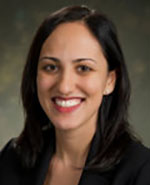 2021 Recipient Erica Sood PhD
2021 Recipient Erica Sood PhD
Erica Sood is a pediatric psychologist in the Nemours Cardiac Center and Center for Healthcare Delivery Science at Nemours Children’s Health and Associate Professor of Pediatrics at Thomas Jefferson University. She directs the Nemours Cardiac Learning and Early Development (LEAD) Program and trains psychology fellows in the specialty area of cardiac neurodevelopment. Dr. Sood’s research focuses on partnering with patient/family stakeholders to identify unmet needs, generate recommendations for psychosocial and neurodevelopmental care, and design interventions to improve neurodevelopmental and psychosocial outcomes. She recently led a team across eight health systems to design a prenatal psychosocial intervention to improve parent and family wellbeing following diagnosis of congenital heart disease. Dr. Sood is an Immediate Past Chair of the Cardiac Neurodevelopmental Outcome Collaborative, Fellow of Division 54 (Society of Pediatric Psychology) of the American Psychological Association, and a member of the Scientific Advisory Committee for Conquering CHD and Medical Advisory Board for Mended Little Hearts.
 2020 Recipient Caren Goldberg MD MS
2020 Recipient Caren Goldberg MD MS
Caren Goldberg is a professor of pediatric cardiology at the University of Michigan. She serves as the medical director for the Cardiac Neurodevelopmental Follow-up program and the co-director of the Michigan Congenital Heart Outcomes Research and Discovery (MCHORD) for the University of Michigan Congenital Heart Center. She serves as one of the principal investigators at the University of Michigan for the work of the NHLBI-funded Pediatric Heart Network. She was part of the founding steering committee of CNOC and has served as a co-chair over the past two years. Her research interests are focused on methods of improving long-term outcomes, including neurodevelopmental and quality of life outcomes, for children with congenital heart disease. She is extremely enthusiastic about the growth of collaboration in our field and the progress of the Cardiac Neurodevelopmental Outcome Collaborative as this will enable us to more quickly answer questions, understand best practices to optimize neurodevelopmental outcomes and advance care for children with congenital heart disease.
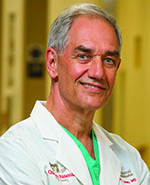 2019 Recipient Richard A. Jonas MD
2019 Recipient Richard A. Jonas MD
Dr. Jonas has been the chief of cardiac surgery and co-director of the Children’s National Heart Institute in Washington DC since 2004. He previously spent 20 years on staff at Children’s Hospital Boston including 10 years as department chief and the William E. Ladd Chair of Surgery at Harvard Medical School.
Dr. Jonas’ interest in neurodevelopment following cardiac surgery began with studies in the Harvard psychology department developing rodent models of ischemic brain injury. He subsequently undertook a series of highly productive piglet cardiopulmonary bypass studies at the National Magnet Laboratory at MIT. These studies suggested that the techniques of bypass used at the time were suboptimal including the use of rapid cooling with severe hemodilution and alkalosis. Inferences from these laboratory studies, together with an epidemic of choreoathetosis in the late 1980s, led to retrospective clinical studies and subsequently several prospective randomized clinical trials at Boston Children’s examining the neurodevelopmental consequences of various bypass manipulations. These early studies were conducted with the outstanding collaborative efforts of Dr. Jane Newburger and Dr. David Bellinger.
Since moving to Children’s National Dr. Jonas’ laboratory studies of neuroprotection have been conducted in conjunction with Dr. Vittorio Gallo, director of neuroscience research at Children’s National and Dr. Nobu Ishibashi, director of the cardiac surgery research laboratory. Their NIH supported studies have investigated the impact of congenital heart disease and cardiopulmonary bypass on the development of the brain, particularly white matter, in the individual with congenital heart disease.
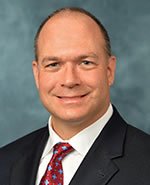 2018 Recipient Bradley S. Marino MD MPP MSCE
2018 Recipient Bradley S. Marino MD MPP MSCE
Bradley S. Marino MD MPP MSCE, Co-Director of Research and Academic Affairs within the Heart Center at the Ann & Robert H. Lurie Children’s Hospital of Chicago. For the last 20 years, Dr. Bradley Marino’s research has focused on measuring and improving long-term outcomes in neonates, infants, children, and adolescents with complex congenital heart disease (CHD). Dr. Marino is an international expert on cardiac intensive care, resuscitation, and the impact of neurodevelopmental, psychosocial, and physical morbidities on quality of life (QOL), functional status, and behavioral/emotional outcomes in the high-risk complex CHD population. He has a special interest in long-term outcomes in single-ventricle survivors.
Dr. Marino has led and participated in multiple NIH and other foundation-funded studies assessing modifiable predictors of long-term outcomes in the high-risk complex CHD population. Dr. Marino has advanced training in public policy and clinical epidemiology. As Co-Director of Research and Academic Affairs within the Heart Center at the Ann & Robert H. Lurie Children’s Hospital of Chicago, he has lead research and academic affairs, pursued work as a principal investigator in cardiovascular research and mentored fellows and faculty in the Heart Center.
Dr. Marino’s ardent goal is to create academic and research infrastructure to assist fellows and faculty in the Heart Center to have successful academic careers and improve patient outcomes and family experience. His major contributions to science include QOL assessment and neurodevelopmental outcomes in pediatric and CHD survivors, single ventricle CHD outcomes, and resuscitation science.
 2017 Recipient Kathleen Mussatto PhD RN
2017 Recipient Kathleen Mussatto PhD RN
Dr. Mussatto is a scientist and Co-Director of Cardiac Research in the Herma Heart Center at Children’s Hospital of Wisconsin (CHW) and Associate Professor of Surgery at the Medical College of Wisconsin (MCW). Dr. Mussatto is Co-Director and research PI for the Cardiac Neurodevelopmental Follow-Up Program at CHW. Established in 2007, this program was the first of its kind in the nation. This work has documented longitudinal development in children with congenital heart disease (CHD) and factors which put children at higher risk for developmental delays. Dr. Mussatto is recognized as an international leader in this area and has been asked to educate others about the evaluation and management of neurodevelopmental outcomes in children with CHD.
Dr. Mussatto’s career path over the past 28 years includes transitions from bedside nurse to research coordinator to principal investigator. She has been engaged in clinical research with children and families with CHD for more than 15 years. Dr. Mussatto has extensive experience in the design, conduct, coordination, interpretation and dissemination of research findings in this population, and a strong record of extramural funding. Her program of research is focused on understanding and optimizing the psychosocial and functional outcomes of pediatric heart disease for affected individuals and their families.
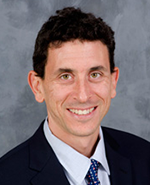 2016 Recipient Steven Miller MDCM MAS FRCPC
2016 Recipient Steven Miller MDCM MAS FRCPC
Head of the Division of Neurology and the Centre for Brain & Mental Health at the Hospital for Sick Children, Professor of Paediatrics at the University of Toronto, and Senior Scientist in the Neuroscience & Mental Health Program at the Research Institute of SickKids. He holds the Bloorview Children’s Hospital Foundation Chair in Paediatric Neuroscience, and was previously a Canada Research Chair in Neonatal Neuroscience.
Leading a multidisciplinary team, his research program focuses on better understanding brain injury and development in the newborn. He and his team use advanced brain imaging and detailed long-term follow-up to help children who were born early or with conditions that put them at risk of neurological and developmental deficits. He has contributed to our understanding of brain abnormalities caused directly by premature birth, perinatal asphyxia or indirectly by congenital heart disease. The ultimate goal of his team’s work is to promote strategies to prevent brain injury, and to promote recovery if the brain is injured to improve the lifelong health of children and their families. He is passionate about supporting the career development of young child health researchers and recently completed his tenure as President of the Society for Pediatric Research.
 2015 Recipient Gil Wernovsky
2015 Recipient Gil Wernovsky
Dr. Wernovsky is a Pediatric Cardiologist and Pediatric Cardiac Intensivist from Philadelphia, Pennsylvania. He has held academic appointments at Cornell University, Harvard Medical School, and the University of Pennsylvania School of Medicine, and clinical appointments at Children’s Hospital, Boston, the Children’s Hospital of Philadelphia (CHOP), and most recently at Nicklaus Children’s Hospital in Miami, Florida. He is a founding member of the Pediatric Cardiac Intensive Care Society and International Society for Pediatric Mechanical Cardiopulmonary Support. He is the incoming co-chair of the 2021 World Congress of Pediatric Cardiology and Cardiac Surgery.
Dr. Wernovsky has been involved in the training of over 150 fellows in pediatric cardiology, intensive care, cardiac surgery and cardiac anesthesia. His clinical interests include the inpatient care of newborns and infants with critical congenital heart disease, mechanical support of the failing circulation, and outpatient follow-up of complex congenital heart disease (CHD). His career goal has been to identify modifiable factors in the care of children with complex CHD to improve overall outcomes, longevity, and quality of life through a holistic, interdisciplinary approach to care.
 2014 Recipient Beatrice Latal MD MPH
2014 Recipient Beatrice Latal MD MPH
Dr. Latal is the Co-Director of the Child Development Center at the University Children’s Hospital Zurich. She leads a large research group and is dedicated to teaching and faculty development. In her research, she investigates the developmental outcome of newborns and children at risk for neurodevelopmental disorders. This includes children born very prematurely, children with hypoxic-ischemic encephalopathy (“perinatal asphyxia”) and children with severe congenital heart disease. Dr. Latal’s main research goals are to characterize the prevalence and severity of neurodevelopmental impairments in these children, to identify the potential risk factors for impairments and to study the mechanisms involved in the etiology of brain injury. Dr. Latal also examines the application of diagnostic tools such as amplitude integrated EEG, cerebral MRI and neurological examination for their potential usefulness as outcome predictors. Outcome research is becoming more important with the increasing survival rates achieved, thanks to major improvements in intensive care medicine and general care. A better understanding of the mechanisms involved in the etiology of brain injury in these high-risk children will allow for neuroprotective drug therapies and other interventions. Such interventions will improve the neurodevelopmental outcome and quality of life of these vulnerable patients and will ensure an optimal integration into adult life.
 2013 Recipient Jane Newburger MD MPH
2013 Recipient Jane Newburger MD MPH
Over the past three decades, Dr. Newburger has led prospective clinical studies in the field of congenital heart disease, including randomized trials, prospective cohort studies, and translational research studies related to neurodevelopmental outcomes. She has particular expertise in leadership of multi-center and multi-disciplinary research, including the building of collaborative groups. She is an author of 400 original peer-reviewed manuscripts, chapters, and reviews. Continuously NIH-funded since 1982, she is currently PI on UG1, UM1, and T32 grants, as well as randomized clinical trials funded by the Department of Defense and Children’s Heart Foundation. She has served in leadership roles in a broad array of national organizations and journal editorial boards, and served as a Senior Editor of Circulation. She has personally mentored over 40 trainees in their clinical research projects, many of whom have sought careers in extramurally-funded clinical research and have achieved positions of academic leadership. Dr. Newburger maintains an active practice of patients with congenital and acquired heart disease.
 2013 Recipient David Bellinger PhD
2013 Recipient David Bellinger PhD
David C. Bellinger is a pediatric neuropsychologist and environmental epidemiologist. He is Professor of Neurology and Professor of Psychology in the Department of Psychiatry at Harvard Medical School, and Professor in the Department of Environmental Health at the Harvard T.H. Chan School of Public Health. His research focuses primarily on the neuropsychological and behavioral sequelae of childhood disorders and exposures. This work has included studies of children with congenital heart disease, low birth weight, and other medical conditions as well as studies of a wide range of chemicals, most notably lead, mercury, and general anesthetics. He has published approximately 400 papers and served on numerous committees at the National Academies, the Environmental Protection Agency, the Food and Drug Administration, and the World Health Organization. Much of his work is conducted internationally, including India (Chennai, Bangalore), Tanzania (Dar es Salaam, Ifakara), the Philippines (Leyte), Mexico (Mexico City, Guadalajara), Bangladesh (Dhaka), China (Xining City, Sichuan), and Mongolia (Ulaan Baatar). He is currently the Editor-in-Chief of Toxics and an Associate Editor of Environmental Health, responsible for the section on children’s environmental health. He was the inaugural President of the International Society for Children’s Health and the Environment, and is currently Chairperson of the WHO Committee on Guidelines for the Diagnosis and Treatment of Lead Poisoning, a member of the WHO Expert Advisory Panel on Food Safety, and a member of the National Academies Committee on Inorganic Arsenic.
